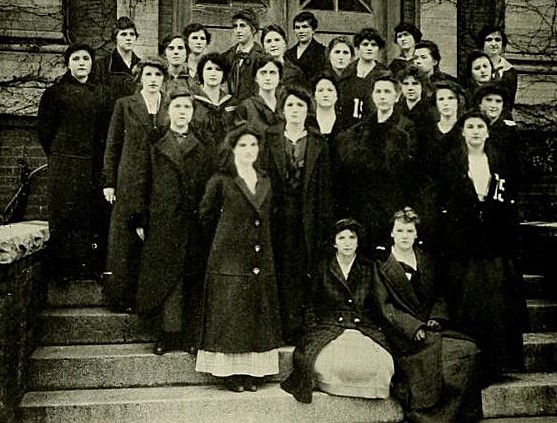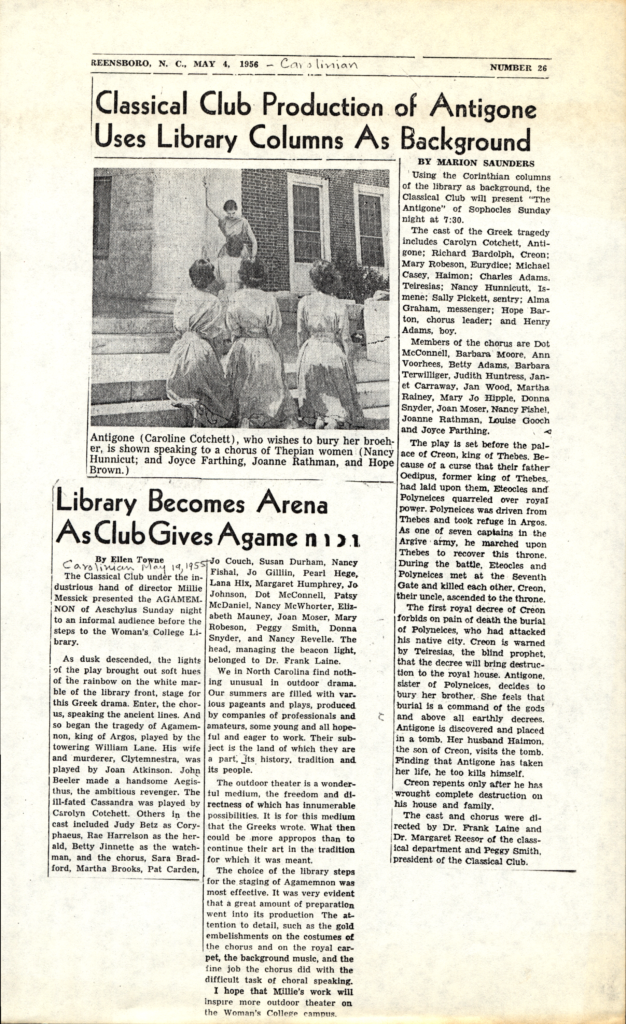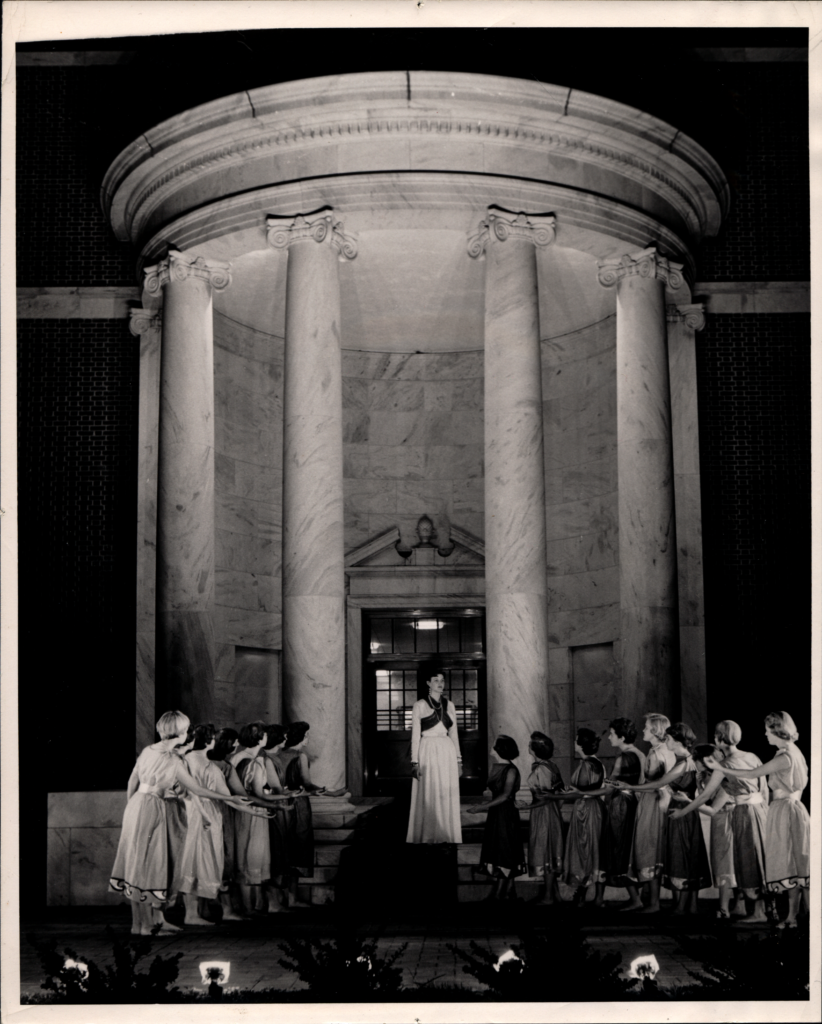Classical Studies has been a foundational subject at UNCG since its inception as the State Normal and Industrial School in 1892. Newly enrolled students were mandated as part of the course curriculum to take Latin for at least three years during their attendance. It was only natural that a student organization for those who were interested and excelled in Latin would emerge.

In 1914, the “Classical Club” was formed at the State Normal and Industrial College (now UNCG), for students who wanted to learn more about the “cultural side of Latin than it was possible to offer in the regular courses” (Pine Needles, 1915). This club was intended to “Not take up too much of the technical side of the language, but [was] designed primarily to help the members of the club to appreciate and love Latin literature” (Pine Needles, 1915). The Classical Club was reconfigured in 1938, and became Phi Psi Omega (ΦѰΩ), a student organization that was open to students who were part of the university’s Classical Civilization program. This program was for majors only and required that members maintain a “B” average in their Classical Civilization courses.
In 1954, Phi Psi Omega changed its name again and reverted back to being the Classical Club. However, this time it became an organization that any student was able to join regardless of their major or grade point average. Club president Millie Messick oversaw this transformation, and at this time the club was advised by Dr. Frank Laine– one of two faculty members in the Classical Civilization department. These changes were important and a bit radical in helping to encourage female interest as the Classics are often viewed as a “male” field of study.

After this restructuring, the Classical Club had fewer meetings. However, the meetings they did have were meant to be more interesting and engaging than meetings of the previous iteration of the group. One of the first activities held post-renaming was a performance of Sophocles’ Electra by students and faculty. The performance of plays– Greek tragedies, to be specific– was one of the most frequent and exciting events held by the Classical Club. As previously mentioned, the first activity held after the renaming and restructuring of the club was a performance of Sophocles’ Electra. As well as Electra, the club later staged performances of Sophocles’ Antigone, Aeschylus’ Agamemnon, and three plays written by Euripides: Medea, The Trojan Women, and Hippolytus. Being an all-women’s school at the time was notable with regards to production of these plays. Plays were often selected based on the prevalence and presence of female roles as all students involved were women, and all male roles were performed by faculty– such as Dr. W.C. Burton as Posiedon in the club’s performance of Euripides’ Trojan Women. In the original ancient Greek productions of these plays, all roles– both on stage and behind the scenes– would have been performed by men. This included the roles of female characters, where the Greek male actors would simply don female masks.

As the club grew, so did the Classics department. Many changes were made with regards to the department after 1954 including new degree options, professors being hired, and classes being offered. Many responsibilities that were originally fulfilled by the Classical Club such as hosting talks, organizing lectures, and holding performances, were shifted to the department as a whole. This was to the benefit of the Classical Studies department and members of the Classical Club, as more talks and lectures were held after this change than before. Eventually classes were established that covered the history of Greek plays, and the students in those courses staged plays rather than the club itself.
The Classical Club still exists at the university today, having been renamed the “Classics Club”, as “Classics” is the more common phrasing for the department now.
Written by Cecil Barlow